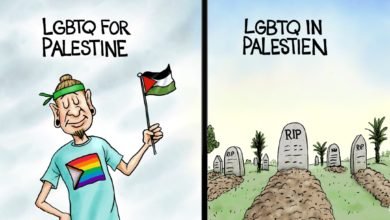What Is the Alt-Right?
What is the alt-right? Why does the media wrongly associate them with Conservatism? What is their worldview? How big is the movement? Michael Knowles, a bestselling author and host of “The Michael Knowles Show”, took a deep dive into their culture and shares what he learned.
What does Alt-Right mean? [transcript]
What is the “alt-right?”
Everybody has an opinion about it, but nobody seems to know exactly what it is. So, I took it upon myself to find out.
I took a deep dive into their culture. I read their books, listened to their podcasts, watched their videos, followed their blogs, and spoke personally to their leaders.
Here’s what I learned:
First, they’re really small… like, your high school reunion small. That “big” national alt-right gathering in Charlottesville, in August 2017? Yeah—that attracted all of about 600 people…and that’s on the high end of estimates. And that infamous torch rally on the evening of August 11? There were maybe 100 tiki-torch carriers.
But however small it is, the alt-right does have a belief system—a worldview. It’s right there, in their name. The alt in “alt-right” means “alternative.” The alt-right is an alternative to American conservatism.
So, it’s no surprise then that the alt-right has far more in common with the left—another alternative to conservatism— than it does with the traditional American right.
Let me try to untangle this.
Both the left and the alt-right are obsessed with race and identity politics—the belief that a person’s value is linked to their racial heritage. The left wants special status for racial and ethnic minorities. The alt-right wants special status for the racial and ethnic majority.
Since America, according to the alt-right, was founded by white Europeans, and was built by white Europeans, it should belong to white Europeans. America’s success, in their view, is a product of race and geography—or, as the alt-right likes to put it, of blood and soil.
So, in the alt-right’s view, the moral ideals of the American Founders—like, “all men are created equal”— are naive and misguided.
The man who coined the term “alt-right” is a white nationalist named Richard Spencer, who runs alternativeright.com as well as the National Policy Institute, the self-described think tank of the alt-right. According to Spencer, the movement is “dedicated to the heritage, identity, and future of people of European descent in the United States.”
Jared Taylor, the editor of the white identity website American Renaissance, holds that, “Any attempt to create a society in which race can be made not to matter will fail.”
Other alt-right leaders include:
Sam Francis, the late syndicated columnist and forefather of the movement who famously called for a “white racial consciousness.”
Theodore Beale, the blogger known as Vox Day, who, in his manifesto, “What is the Alt-Right” cites the white nationalist motto, “We must secure the existence of our people and a future for white children.”
And Paul Ramsey, a white nationalist who produced and starred in a video entitled, “Is It Wrong Not to Feel Sad about the Holocaust?”
Another area of agreement between the alt-right and the left is that both ultimately reject God. The alt-right admires Christendom for uniting the European continent, but rejects Christianity for its offer of salvation to all people, irrespective of race. The movement’s favorite philosopher—just like the Nazis of yesteryear—is Friedrich Nietzsche, who famously claimed, “God is dead.”
Spencer himself is an avowed atheist who, like leftists since Karl Marx, longs for a new ideology “as robust and binding” as Christianity to replace traditional religion. That brings us to the most glaring similarity between the alt-right and the left: their disdain for the individual.
The constant focus of both the left and the alt-right on group identity means that they downplay the value of the individual. This stands in stark opposition to the fundamental American value, which conservatives have long championed, that places the individual, not the collective, at the center of society. The pioneer spirit, entrepreneurial drive, the acceptance of personal responsibility—these are uniquely American ideas, uniquely conservative ideas. But they mean little, if anything, to the alternatives to conservatism: the left and the alt-right.
Put simply, the alt-right has three core beliefs: the promotion of white identity politics, the rejection of God, and the subordination of the individual to the collective.
In other words, the alt-right has nothing in common with conservatism, and is in fact much closer to leftism. Except, of course, that the left is much, much larger.
I’m Michael Knowles, host of The Michael Knowles Show, for Prager University.




